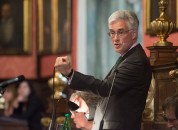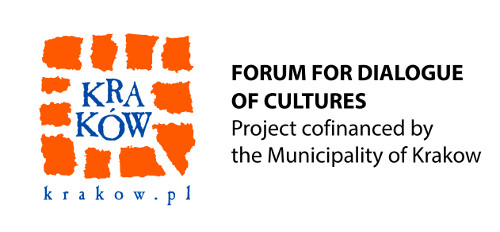
We have the pleasure to present the photo-report of the sixth edition of the Polish-British Round Table – the most important informal Polish-British forum in which leading politicians, diplomats, officials, intellectuals and representatives of business and the media from Poland and Great Britain discuss major topics of current interest as well as most important European and global problems.
In the 21st century, Britain and Poland are partners in the European Union, NATO and many other organizations. Both generally agree on the need for an open, free, outward-looking and broadly Atlanticist Europe, but they also have significant differences of perspective on many issues. Both their agreements and their differences are of growing importance for each country, for Europe, and sometimes for the wider world.
It is in this context that a tradition of Polish-British Round Tables that reaches back to the 1960s has been revived in a now well-established format. In its current incarnation, the Polish-British Round Table brings together leading figures from politics, business, academia, journalism and think tanks in both countries, to discuss major topics of current interest in the Renaissance setting of the Villa Decius in Kraków.
The proceedings begin with a public event at the Jagiellonian University: In 2012, this was a televised debate between BBC Trust chairman and former European Commissioner Chris Patten and former Polish President Aleksander Kwaśniewski. The Round Table proper comprises a maximum of thirty-five people sitting round a single table, in informal but well-informed debates introduced by one speaker from each side. Topics in recent years have included Overcoming Economic Crisis, European Security and EU Enlargement.
Participants have included David Miliband, Włodzimierz Cimoszewicz, Malcolm Rifkind, Lucy Neville-Rolfe, Adam D. Rotfeld and Andrzej Olechowski.
The Round Table is organised and run by a group of independent think tanks and institutions, and is entirely independent of both governments. However, it has enjoyed the support of the Foreign Ministries of both countries and has become a valued fixture in Polish-British relations – always viewed in a wider European and global context.
The session Polish-British Round Table was attended, among others: Timothy Garton Ash, Charles Grant, Robert Cooper, Robin Niblett, Denis MacShane, Gideon Rachman, Mikołaj Dowgielewicz, Włodzimierz Cimoszewicz, Adam Daniel Rotfeld, Andrzej Olechowski, Aleksander Smolar, Jan Krzysztof Bielecki, David Miliband, Malcolm Rifkind and Chris Patten.
Polish-British Round Table 2013 organised by: Centre for European Reform (London), Chatham House (London), demosEUROPA – Centre for European Strategy (Warsaw), European Studies Centre (Oxford), Unia&Polska Foundation (Warsaw) and Villa Decius Association (Krakow).
- Centre for European Reform is a think-tank devoted to making the European Union work better and strengthening its role in the world by taking on more responsibilities globally, on issues ranging from climate change to security. It aims to promote an open, outward-looking and effective European Union.
- Chatham House is home of the Royal Institute of International Affairs which was founded in London in 1920. The Institute is a world-leading source of independent analysis, informed debate and influential ideas on how to build a prosperous and secure world for all.
- demosEUROPA – Centre for European Strategy is an independent international research institution which aims to provide strategic insights into key aspects of the European Union, the functioning of its institutions and policies. It seeks to formulate answers to the challenges facing the European Union, its member states and citizens.
- European Studies Centre the European Studies Centre at St Antony’s College in the University of Oxford is a leading centre for the interdisciplinary study of Europe. It is home to Oxford’s new Programme on Modern Poland.
- Unia & Polska explores issues dealing with the European Union’s eastern neighbourhood policy and other themes related to Poland’s membership of the European Union. Set up in 2001 as a part of the legacy of Unia & Polska magazine which prepared Poles for membership of the European Union.
- Villa Decius Association is a cultural organisation of an international outreach which promotes intercultural dialogue and advocates pluralism in public life. Over the years it has become one of the most recognised and important institutions linking Poland with Europe.
Funders:





































